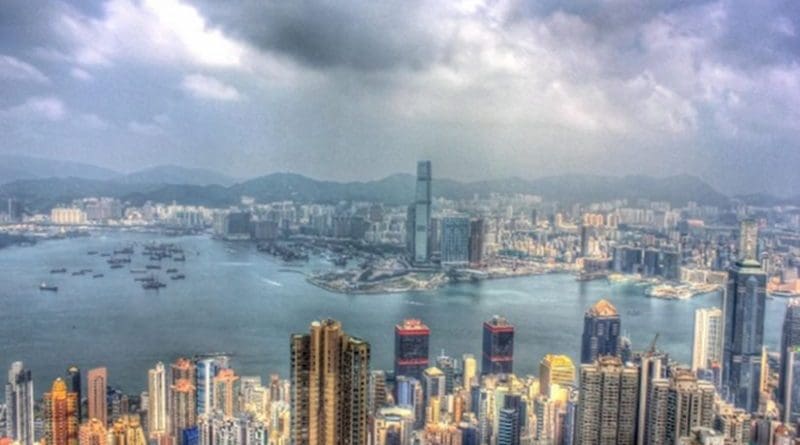Hong Kong: June 4 Bloody Crackdown To Be Cut From School History
By UCA News
The Hong Kong government will erase the 1989 Tiananmen Massacre from its revised history curriculum for students beginning secondary school, in a move which experts say signal a worrying erosion in the semi-autonomous region’s political independence.
On Oct. 31, the city’s Education Bureau revised the Chinese history curriculum for junior secondary students — who are primarily between 14 and 16 years old — to slash not only the large-scale, politically driven killings in Beijing, but also the leftist 1967 Hong Kong riots.
The reasoning, according to the government, is that there is not enough academic material about the decline of the Chinese dynasties included early on.
Hong Kong is governed under the principle of One Country, Two Systems — allowing the city practical and relative control of most issues falling outside of national security and international relations. The territory has its own mini-constitution called the Basic Law.
“Education should be a matter for Hong Kong to decide,” said Maya Wang, Senior Researcher, Asia Division at Human Rights Watch.
“But as the Chinese government increasingly interferes into Hong Kong’s domestic affairs, the Hong Kong government is losing autonomy over some educational policies as well,” Wang said.
Teachers and schools will be left to decide on their own if they want to teach the 1967 Riots or the 1989 massacre. The revised curriculum is now open for a second round of public consultation after Hong Kong’s Chief Executive, Carrie Lam, made Chinese history compulsory for junior secondary students.
The Chinese government has for a long time put pressure on Hong Kong’s Education Bureau to promote patriotism among the city’s students. Both Beijing and Lam are hard-line advocates of national education: the adoption of patriotic Chinese studies in local Hong Kong schools.
The program purportedly aims to foster a greater sense of identity with Mainland China among Hong Kong’s students, but has long been criticized as a form of brainwashing.
The Hong Kong government has at times given extreme responses to the pressure from Beijing to reform its education, by vowing to punish teachers who advocate independence.
Lawmaker Junius Ho said in September that students who want independence from China should be “killed mercilessly.”
“The [Education] Bureau has adopted views similar to the Chinese government — that peaceful advocacy of independence is contrary to the Basic Law, that Hong Kong students should love China, that events like the Tiananmen Massacre are ‘unimportant,'” Wang said.
Former Chief Execute Leung Chun-ying proposed national education in 2012, galvanizing the then-teenage Joshua Wong — the city’s most well-known activist — to protest.
Many in Hong Kong are resistant to the implementation of National Education, which is a highly divisive issue in the city.
The Hong Kong Professional Teachers’ Union is supplying education kits on sensitive issues including the Tiananmen Massacre and the death of Nobel Laureate Liu Xiaobo while prohibited from leaving northeast China.
“The communist state is trying all means to influence curriculum reform in Hong Kong,” said Henry Kwok, senior lecturer, School of Education and Languages at the Open University of Hong Kong. “Once it is made compulsory, other school subjects… probably need to give way.”
The government said in a paper filed to the legislature that according to the first round of consultation on the curriculum — which was conducted last year —almost all teachers agreed with the revisions. The government also said it met with student groups, but did not identify them.
The revised history curriculum — scrapping major recent events — could potentially ramp up the prosperity of ancient China while diminishing the importance of modern history.
“To some extent, the Chinese Communist Party is able to stay in power by relentlessly telling a simple, heavily-politicized historical narrative,” said William Nee, China Researcher at Amnesty International.
“Beijing is applying pressure to Hong Kong to teach a politicized form of national education that downplays the many atrocities and catastrophes in PRC history and plays up aspects of national strength and economic development,” Nee said.
Hong Kong’s 1967 Riots are widely viewed as labor disputes that grew out of control, and — like the student movement leading to the Tiananmen Massacre —resulted in a high number of casualties.
Beijing has a marked and open disdain for both organized movements and self-interest groups. The Chinese government is also rarely open about domestic clashes that may be perceived as embarrassing to the outside world, and thus it censors both large and small-scale protests.
The second round of public consultation for the revised history curriculum will end on Nov. 30 and it is expected to go into effect in 2020.
“All of this creates a chilling environment for free speech in Hong Kong’s schools. Teachers and students are worried that if they say they support independence, or if they do not love China, they might face consequences,” rights researcher Wang said.

